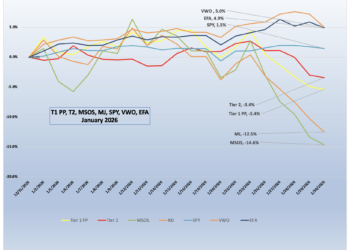Herbal Alternatives II appears to be no more, after its owner pleaded guilty to tax evasion and transferred their license to another entity before fending off a cease-and-desist order from the Washington, D.C., government.
Jennifer Brunenkant on May 13 admitted to not paying taxes from 2017 to 2021 and then attempting to further evade those taxes by lying to investigators about having already made the payments.
The government said it will seek restitution of at least $1.2 million. Tax evasion and failure to pay employment taxes each carry a statutory maximum sentence of five years in prison. Brunenkant’s sentencing is scheduled for Nov. 20, 2025.
This week, the shop that was once called Herbal Alternatives will reopen as Adegoke, according to a store spokesperson. Washington’s Alcoholic Beverages and Cannabis Administration (ABCA) approved a license transfer from Resolution Inc., dba Herbal Alternatives, to Adegoke Holdings LLC on June 25.
The ABCA ordered the medical dispensary, under the name Herbal Alternatives II, to shut down earlier this month due to failure to pay $15,000 in renewal fees. One week later, the ABCA voted to revoke the cease-and-desist order after the company paid their overdue fees.
Former interim U.S. Attorney Edward Martin accused Brunenkant in February of failing to pay $930,000 in federal taxes over the span of four years. The indictment contains 19 charges that were unsealed and released March 6 by the Department of Justice.
Brunenkant has been associated with licenses for Herbal Alternatives II and Herbal Alternatives, both located at 1710 Rhode Island Ave. NW, and an inactive cultivation license for JJJB LLC.
Meanwhile, Martin, a conservative radio host who was nominated by Trump but never confirmed, has been replaced as Washington’s interim U.S. attorney by Fox News personality Jeanine Pirro.
D.C. gray-market crackdown continues
District residents voted to legalize adult-use cannabis in 2014, but the Republican-controlled House blocked the district from enacting regulations that would have allowed a commercial market.
As a result, a gray market emerged relying on the ability to gift cannabis. Shops opened that featured free gifts of cannabis along with sales of T-shirts, paraphernalia and even legal service discount coupons.
In an attempt to rein in the gray market, the district passed a new cannabis law in 2022 that added more medical cannabis licenses and allowed gray-market businesses to apply last year. The ABCA has since issued 125 warning letters and 41 cease-and-desist orders to gray market shops, and shut down 82 of them.
There are currently 70 active licenses for dispensaries, according to the CRB Monitor licensing database.
Herbal Alternatives II was an organizing member of the Alliance of Legal Cannabis Entities, which sued more than 100 unlicensed pot shops in a series of federal lawsuits last fall. Recently, the ALCE filed for class action status in an amended complaint, filed Feb. 17 in U.S. District Court of the District of Columbia.
ALCE’s lawsuits claim that Washington’s gray market is pulling in $600 million annually. Comparatively, licensed dispensaries, cultivators and manufacturers made more than $53 million in sales throughout Washington’s fiscal year 2024, which ran from Oct. 1, 2023, to Sept. 30, 2024, according to ABCA’s most recent medical program quarterly report.
Cannabis companies fight federal taxes
Taxes are a hot issue in the world of legal cannabis, as 280e of the tax code forbids cannabis companies from writing off business expenses when that business deals in federally illegal substances. Over the last year, Trulieve Inc., Ascend Wellness and TerrAscend Corp. have all made similar moves, claiming that they 280e should not apply to state-legal businesses.
The federal government said their claims are illegitimate, but they have yet to be tried in a court of law.
Recently, a company in New Mexico sued the federal government over a $2.76 million refund that the company would be owed if 280e did not apply.
New Mexico Top Organics sued the federal government on Dec. 16, 2024. The IRS notified the company last October that it owed taxes for 2018, 2019 and 2020. New Mexico Top Organics disputes that determination and further claims they actually are owed $2.76 million for tax overpayment.
The case, New Mexico Top Organics Inc. v. Commissioner of Internal Revenue, was filed in U.S. Tax Court and remains pending.












